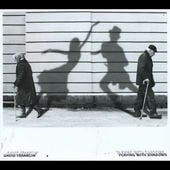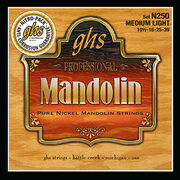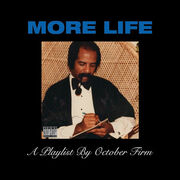New York, NY (Top40 Charts) Multi-instrumentalist
David Franklin hears music and rhythm patterns everywhere in his day-to-day life whether it is machines, telephones, a vacuum, vibrating objects, a door closing or a baby crying; he uses these "found sounds" as inspiration or even directly in his compositions. In addition, whether playing piano, guitar, synth or percussion,
Franklin usually is not content to simply pick up an instument and make traditional notes and melodies, but instead enjoys manipulating the music by trying unusual tunings, using reverb or distortion, recording the sounds backwards, or playing the instrument in an unorthodox style. All of this and more comes into play on Franklin's latest recording, Songs of Potential Embrace, an eclectic collection of 16 pieces that could be categorized as new age avant-garde.
"I like sounds and I have been playing with sounds all my life," explains Franklin. "I started out as a drummer, and I have always been a person who hits different objects just to see what it sounds like. Or I might spot a construction site, stop my car and go sing into an 80-foot pipe to find out what it does to my voice. It's like there is a symphony of sounds going on around us all the time, and I often collect the sounds I hear by recording them on my phone. When I finally heard artists like
John Cage and Steve Reich I realized I wasn't crazy when I was hitting garbage-can lids and pipes. My guitar playing was hugely influenced by Michael Hedges because of the different tunings he used, and I found that open tunings, for example, push me to explore different places musically."
Songs of Potential
Embrace is
David Franklin's ninth album. He began as a folk-pop singer, did a Christmas solo piano album, released an experimental avant-garde recording geared to induce trance-state healing, and most recently released a successful instrumental melodic new age album (Playing With Shadows) which also featured renowned fretless bassist Michael Manring. That album spent two months in the Top 10 of the international Top 100 Zone
Music Reporter Chart (the most important listing of successful new age recordings). Songs of Potential
Embrace and other recordings by
David Franklin are available as CDs and digital downloads through his website (DavidFranklin.com) as well as many online sales sites including iTunes and Amazon.
Franklin believes music is one of humanity's most powerful tools for healing, and he hopes his music will help listeners connect to their inner feelings and ultimately create more of a sense of connection in their lives. Franklin, who also is a Licensed Marriage and Family Therapist in Northern California, says, "Music influences us on many levels, such as relaxing us, making us feel better, serving as a bridge that connects us to ourselves and others, helping individuals form a deeper understanding of life, and serving as a healing tool."
On Songs of Potential
Embrace Franklin brings together elements of "found sounds," avant-garde, new age and ambient music. "I like to explore some of the many different possibilities of music, and I don't like limiting myself in creating music. The idea behind the album title is really asking the world a question. Can all the people of this planet try to understand our connectedness, and accept each other as part of humanity rather than rejecting one another because of religion or politics or anything we don't agree on?"
The music includes new compositions, several tracks created specifically to accompany performances by a San Francisco dance troupe, and a couple of tunes originally on Franklin's avant-garde Shadowlands album that have been reworked and remixed.
Several pieces are only acoustic piano -- "Mourning in America" ("I haven't given up on America, but I am saddened by many things that have happened in our country"), "Inbal's Theme" (a very slow, sparse, ambient tune created for a woman dying of cancer), "Shade and Shadow" (overdubbed piano about which
Franklin says, "I like it when the music challenges me"), and the companion piece (also with two piano parts) "Shade and Darkness" ("I went to Italy last year and played this live while a dance troupe performed in this ancient square"). A couple of tunes are all synthesizer -- "Whirling," "Ambient Fog" and "Xas10Shl (existential)" -- and one, "Allowing," combines piano and synth.
Other music on the album features both piano and guitars. Regarding "The Failed Experiment of Consciousness,"
Franklin says, "Global warming and climate changes are issues I am very concerned about, and I am cautiously hopeful the human race will wake up and rectify some of these uncomfortable truths." On that tune he uses an acoustic baritone guitar with altered strings and an alternative tuning, and he adds some electric guitar toward the end. Another piano-guitar piece is the melodic "So Far Below" which uses the same altered baritone guitar and which was written in a cemetary.
The more experimental, avant-garde material on the recording includes "
Calling" which uses a telephone ringing as a rhythm pattern behind an out-of-tune piano from the 1800s, a plucked violin and wordless vocalizing. "Piece for
Vacuum and 3 Voices" uses a vacuum as a background drone sound with the voices capturing the feeling of music from
India including a rhythmic tabla-like part. "RH Factor" features a backwards guitar and a baby crying ("The sound of a baby crying resonates deep within us biologically."). "Swamps of New Jersey" includes an udu (an African hand percussion pot) recorded backwards, bass notes from a harp guitar (some bowed), water sounds from a drum with ballbearings inside, and stream of consciousness vocals. "Quotes" is comprised of snippets of conversations with troubled teenagers mixed with unusual guitar sounds -- a guitar lightly bumping against a shelf, a clicking sound from an electric guitar and purposely "cranked distortion." "The Wildness" is a 57-second tune containing singing bowls and
Franklin reciting a poem.
Franklin was born and raised in New Jersey. In the fifth grade he discovered drums, in sixth grade he picked up guitar and started writing songs, and in high school he was also playing piano and singing. He played drums in rock bands through high school and college, while earning a Bachelors degree in Environmental Science at Pennsylvania
State University. While at college he also performed as a singer-songwriter. After college he worked in New York City for three years using his environmental degree and taking air samples inside office buildings while also playing keyboards in a rock band.
Wanting to make more of a difference by calling attention to environmental problems and solutions,
Franklin took a year off to join 90 other environmentalists in The Global Walk for a Livable World, a year-long hike across the country. Along the way they spoke at schools, to the media and to politicians.
Franklin wrote and recorded songs throughout the trek, and that music was released as an album, Our Children's Only Home. The albums that followed also were primarily vocal folk-pop projects -- such as Patterns Yet Unknown and Strangers and Angels.
Franklin also did a solo piano album called Traditional Christmas Melodies. Additionally he embraced avant-garde, experimental music with Shadowlands, his first venture to explore "found sounds" (such as the rhythmic sound of computer printers).
Franklin later returned to college and earned his Masters in Counseling and went on to become licensed as a Marriage and Family Therapist, specializing in working with teenagers, and often incorporating music into his work.
"Music can be a powerful healer and an important soundtrack as we access and understand the deeper parts of ourselves,"
Franklin says. "Ultimately I hope this music helps some listeners experience a sense of connection to themselves and to others."
























